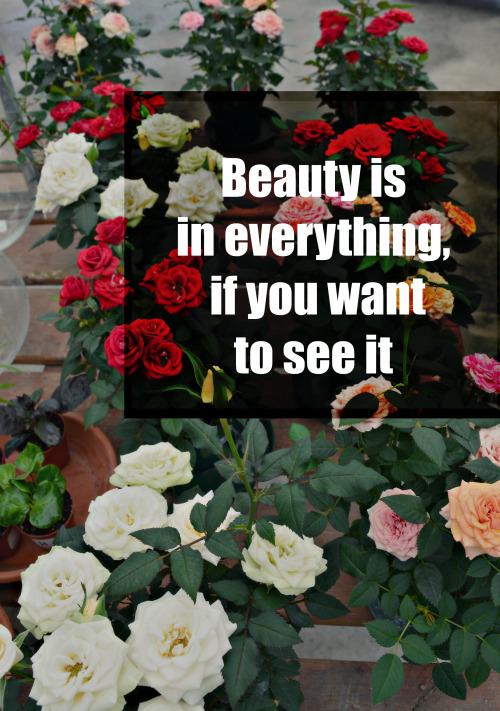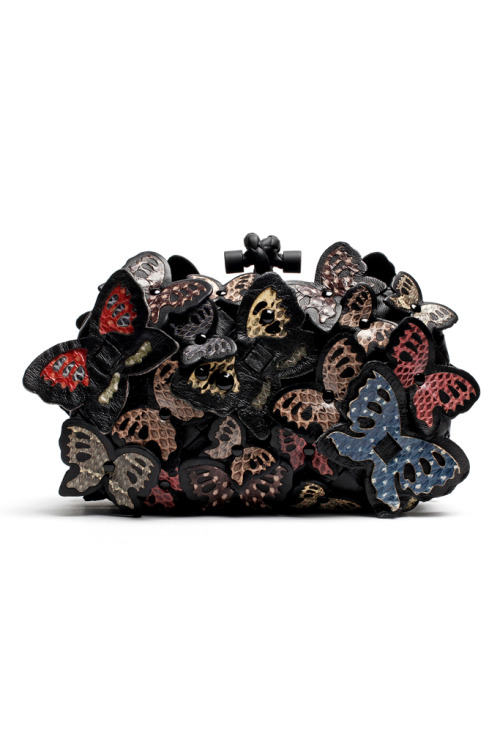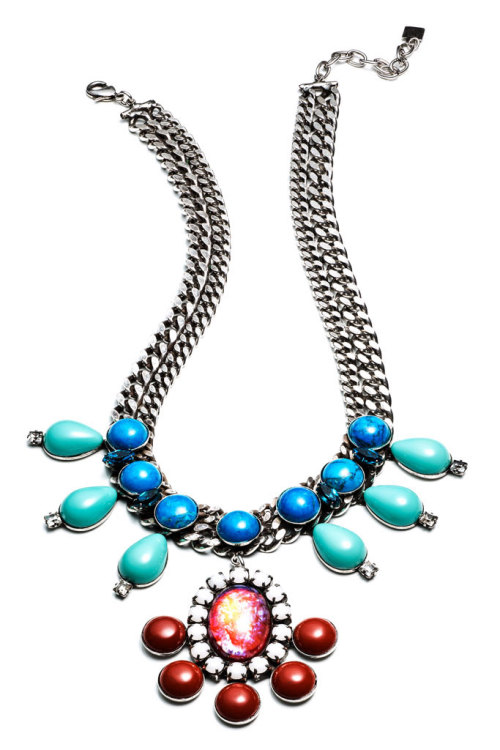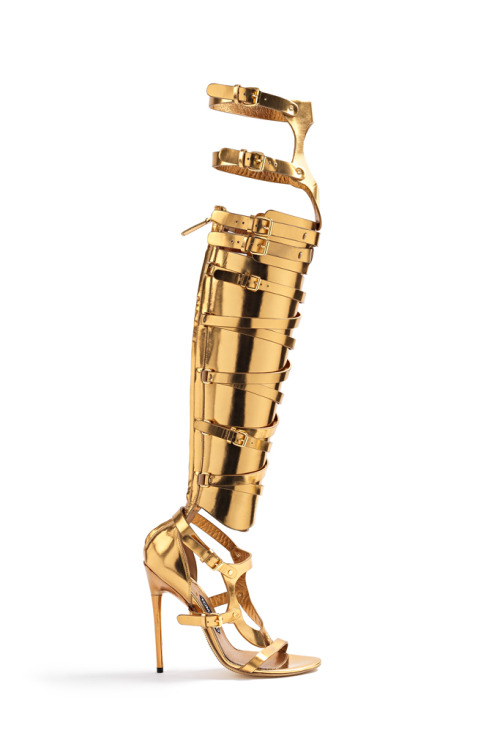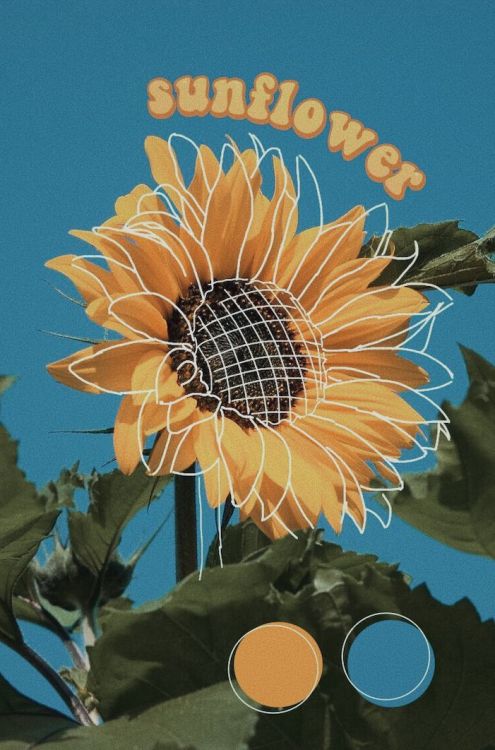#editor
This is the third installment of Allison’s Saturday blog series on the comic anthology “Who is the Silhouette?”. You can find the other installments at who-is-the-silhouette.tumblr.com.
We broke the cartooning process into four rough stages: scripts/character designs, thumbnails, pencils, and inks. Each team has a folder on Google Drive for their materials, and Tom and I keep a spreadsheet where we mark the date that different milestones are met so that we can keep track of where everyone is at and what they need from us.
We sent out a script template, which most of our teams chose to use. We like this particular format because it gives a panel by panel breakdown of what’s happening on each page. We used google docs to leave comments and suggestions and converse with the writers and artists. A lot of our suggestions focused on ways to tie the individual stories back to the intro, to anchor the comics within the larger framework of the anthology.
With thumbnails, we were looking for clear sequencing and a suggestion of how the pages would come together. At this stage we had a few notes for clarifying action, but mostly we just wanted to see that things were moving forward toward pencils.
Pencils were an opportunity for more detailed notes, again working to clarify the action and get things ready for inks–we wanted to give as few notes as possible once things had been inked, because pencils are so much easier to change.
At the ink stage, we focused on small edits, little details that would help draw the eye across the page, dialog tweaks and copyediting.
Other editors may have their own systems and phases, and not all of our contributors did everything in the same order (some folks like to do thumbnails before scripts, and work out their storytelling visually instead of verbally, which is great!) We wanted people to do what worked best for them, but also to communicate with us and give us space to provide notes. We wanted to be a resource to help our contributors make comics that worked well together in the book and which they could be proud of. The work they did blew us away, and we are so proud to have been a part of it.
Next week: Kickstarter and promotion.
FADE EM ALL- Punk Tempo
OUT NOW
Director of Photography & editor: Wayne Edwards
This series has covered dozens of various jobs, but one industry that has not often been featured is performing arts. This month, however, I had the pleasure of interviewing Anu Bhaskararaman, a talented performing artiste and editor in Chennai. Anu has studied and performed in a myriad of dance styles and also uses her Linguistics background in her freelance work as an editor.
You can follow Anu on Instagram (@anubhaskararaman).
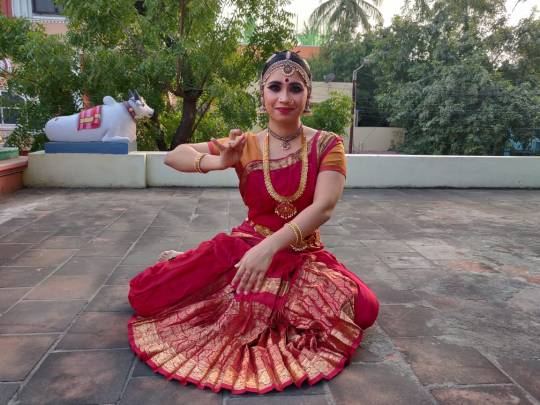
What did you study at university?
I have a BA in English from Stella Maris College, Chennai and an MA in Linguistics from SOAS, University of London. The MA was a general Linguistics Master’s, but a lot of the subjects I chose were in the fields of Documentation and Revitalisation.
What is your job?
I used to work as an editor at a publishing firm in the English Language Department. We worked on textbooks for schools. In India, we have different boards of education and the curriculum for each board is different. We worked on a material for a couple of different boards. After a year of working at the firm, I switched to freelancing as an editor and went full-time into performing arts, focusing on dance. I am a Bharatanatyam dancer and have been training in this form for close to 22 years. I also learnt ballet for two years between 2010 and 2012. In 2018, I went to Attakkalari Centre for Movement Arts, Bangalore, where we trained primarily in Kalaripayattu, Bharatanatyam and Contemporary, and additionally in Chhau, Modern and Ballet.
I have now started classes where I teach Bharatanatyam, and also assist my teacher in her class and perform solo as well with class ensemble. On a daily basis, I teach dance, learn dance and music, have practice sessions at home and my dance class, and also workout. I helped found and edit an online magazine for performing arts in India called Kaleidoculture with a colleague. I also have dance projects that I work on solo as well as with various colleagues, so all of this definitely keeps me busy! Sometimes, there is editing work in addition but the good thing is, since I freelance, I’m able to figure out my schedule. I also end up working from home a lot.
How does your linguistics training help you in your job?
Linguistics does not really come in for me where dance and other performing arts are concerned. However, training in linguistics has been very useful for my editing job. My workplace dealt with textbooks where the focus was on teaching English. For very young grades, being able to understand language acquisition and phonetics to a certain extent, even at a basic level really helped.
I loved studying Linguistics especially because I have loved languages and everything to do about languages since I was very young. From that perspective, I think my degree was useful in helping me understand people and languages around me. I am able to see the many ways in which language affects people and society, so even if it doesn’t directly help in my job right now I would still say that it has been useful.
What was the transition from university to work like for you?
I came back to India after a year in London for my Master’s, but I started looking out for jobs fairly soon. The job hunt was put on the backseat for a bit when performance season came up here. Since I had been away for a year and not had much opportunity to perform, I was looking forward to throwing myself into practice and performance. Once that was done, I got the job at my publishing firm a couple of months later. My workplace was very enthusiastic about the fact that I had studied linguistics and tried to use as much as they possibly could, so the transition was quite easy. It also helped that I had studied and enjoyed studying literature for my undergrad, so it was a nice coming together of sorts of both my degrees.
Do you have any advice you wish someone had given to you about linguistics/careers/university?
I wish someone had told me how useful it would have been to study Linguistics for my BA as well. I loved studying Literature but I also felt like there was a lot I had to catch up on for my Master’s, which only added pressure. I also wish there was more information on pursuing Linguistics in India, especially as a career. It was almost impossible to find a job. I even signed up as a volunteer linguist for a project and did not hear back.
Related interviews:
- Interview with a Freelance Editor, Writer and Trainer
- Interview with a Freelance Translator and Editor
- Interview with an Editor and Copywriter
- Interview with a Dance Instructor and Stay-at-Home Mom
Recent interviews:
- Interview with a Hawaiian and Tahitian language Instructor, Translator & Radio Host
- Interview with a Customer Success Manager
- Interview with an Impact Lead
- Interview with an Online Linguistics Teacher
- Interview with an Academic Linguist
- Interview with a TV Writer
- Interview with a Senior Analyst, Strategic Insights & Analytics
- Interview with a Social Media Lead
Resources:
- The full Linguist Jobs Interview List
- TheLinguist Jobs tag for the most recent interviews
- The Linguistics Jobs slide deck (overview, resources and activities)
The Linguistics Jobs Interview series is edited by Martha Tsutsui Billins. Martha is a linguist whose research focuses on the Ryukyuan language Amami Oshima, specifically honourifics and politeness strategies in the context of language endangerment. Martha runs Field Notes, a podcast about linguistic fieldwork.
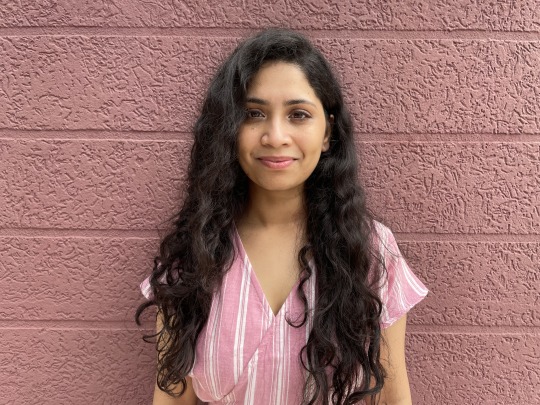
Kodi Van Art is the director, writer, and founder of KREATIVE ZENTITH/ZENITH KREATIVE GROUP, a multimedia/film company and a powerful art house of visual artists, photographers, directors, editors, and writers. He and his team create everything from films, music videos, and commercials to events and even viral campaigns.
Kodi has always had a passion for directing and script writing since his teenage years, creating short films for his High School in NYC. Now living in Atlanta he has co-written and directed a student play at MoreHouse University, created short films on campus, and contributed video work for various internet blogs. His work and that of is team is DOPE!! Check out their website here
Hello Tumblr,
I offer affordable, yet thorough, editing services for fiction writers. As an indie writer myself (pen name, Lara Grey), I know it can be hard to afford quality editing. Yet, you want to make sure you’re writing comes across as professional.
So you’re between a rock and a hard place. That’s why I created GenreFictionEditing.com. I actually enjoy editing, it isn’t just a job to me. I still have bills to pay, so I can’t edit every indie author’s manuscript for free. But I certainly would if it was possible to survive while doing so, lol.
I look forward to reading snippets of every Tumblr writer’s wonderful WIP while I’m on here. Have a good day all!My editorial services side blog, which will regularly feature writing & dialogue prompts, resources, etc.
Editorial: October
- Ibrahim Hewitt, Chairman of the Trustees
As news that the latest attempt to break the illegal blockade of the Gaza Strip has, once again, been impeded by the might of the Israeli military, it is important to remember that the spirit of these women, and the Palestinians who eagerly awaited their arrival remains unbroken. In the spirit of the Women’s Flotilla then, we are reminded of the importance of international efforts of solidarity with the Palestinian people in the face of their prolonged plight. We can carry this collective spirit forward in order to honour the efforts of the Freedom Flotilla.
The past month has been filled with activities of celebration, sombre remembrance and the reappearance of the Palestinian situation on the international stage. Interpal’s Qurbani campaign united Muslims from around the world to feed the needy and share our blessings with those who need it most. September also marked the 34th anniversary of the massacre of Palestinian refugees at Sabra and Shatila, condemned as an act of genocide by the United Nations but one which has largely been forgotten by the international community. Developments at the United Nations have dominated the news over the past month, with the U.N. General Summit taking place in New York. The appointment of António Guterres as the successor to Ban-Ki-Moon is emblematic of public concern over the ongoing refugee crisis gripping the Middle East. Within this, however, it should not be forgotten that the displacement of Palestinians from their homeland is now the longest-running refugee crisis in the world. With the attention of world leaders focused mainly on those fleeing the violence in Syria, it is equally important to remember those Palestinians displaced in 1948 who have been uprooted once again.
As the nights draw in and the weather turns, we are focusing our attention to those who struggle throughout the long, dark winter months. Looking forward, the concern is always present that another emergency will unfold, leaving those already struggling unprepared and without hope of protection. Our #ChanceToLive medical aid fund prepares for any eventuality in order to be ready to distribute aid on the ground should such a catastrophe occur. In the meantime, we extend our thanks to you for your continued support and generosity, without which, our mission to help Palestinians in need would not be possible.
Post link
Editorial: December
- Ibrahim Hewitt, Chairman of the Trustees
The past month has been marked by cataclysmic tremors in world politics, from the news that Donald Trump will become the 45th President of the United States of America to the ruling in November that legitimises settlements build on private Palestinian land in the West Bank. These watershed moments, though stemming from different contexts and significant in their own respective ways, herald a difficult new era for the international solidarity movement.
On the 29th November the United Nations commemorated International Day of Solidarity with the Palestinian People; an annual affirmation of the organisation’s commitment to pursuing a lasting peace and justice in the region. In his speech to the assembly, Jan Eliasson, the Deputy Secretary General commended the efforts of the global solidarity movement in reaching historic milestones for the movement, such as the formal recognition of Palestine as an Observer State in 2012. However, Eliasson also acknowledged that the past decade has been characterised by symbols of solidarity rather than lasting measures to pursue peace.
As events on the world stage unfold, unfortunately the reality on the ground for Palestinian refugees remains woefully unchanged. With winter approaching, the situation is uncertain. Our fundraising team visited the Lebanese refugee camps in November to speak to staff from the Lebanon Field Office and see the conditions of the camps for themselves. You can read more about their trip here.
The winter stretches ahead of us, as the temperature drops and the nights draw in, it can be easy to forget about those for whom winter is a time of harshness, not comfort. This year, we aim to deliver aid to over 5000 Palestinian families, as well as to Syrian refugees displaced by the ongoing crisis. Only with your help can we equip those in need with vital supplies to see them through the winter. As we look ahead to 2017, let’s come together #ForPalestine and keep them out of the cold.
Post link
Lately I’ve seen some posts by a number of writers concerned about the editing process. In particular, what happens when your editor starts trampling your voice? Or when they start changing things that are clearly a matter of taste, not structural or grammatical issues? Or when their comments are rude or condescending? Or when you don’t even recognize your own book anymore, and not in a good way?
Basically, what happens when you get your manuscript back from your editor, and you get that sick feeling in your stomach like “This is ruined”?
First, right off the bat, without even getting into whether the editor is right or wrong, it’s a perfectly natural and acceptable reaction when you have some hardcore edits that involve massive revisions. This is especially true early in your career, but trust me, it doesn’t magically go away. It’s tough on the ego to see that manuscript you worked so hard on come back slathered in red. It’s demoralizing. And it’s okay if you feel that way!
You know what I do when I get a set of edits? I go through it one time and let my inner toddler go nuts. I mentally flail and push back and holler and roll my eyes and “oh my GOD that is BULLSHIT” and I eat a cookie. Then I put the manuscript aside. The next day, I take a deep breath and go through it again, and more often than not – especially now that I’m mostly indie and I hire editors who I mesh with – the comments and changes aren’t so bad after all. So I 100% give you permission to do that if getting it out of your system helps.
THAT BEING SAID.
The inner toddler isn’t always wrong. When I read through it the second time, if my eyebrows keep climbing until they touch my hairline, it’s possible that something is amiss here besides my ego needing a nap.
So what happens when you and your editor disagree? How do you know if the problem is the editor or the manuscript? And how do you handle it? Well, that can be tough, and the answer usually comes down to communication.
But let me say this upfront: it’s not just you. After 11 years in print, I’m creeping up on 200 titles in my catalogue. I have, shall we say, extensive experience with editors, and it hasn’t always been good.
With one publisher, I had to hire a copy editor on my own to go through and undo all the errors *their* copy editor inserted, not to mention fix all the ones they’d missed. That’s a pretty objective problem. If your editor is missing mistakes or ADDING mistakes, then you need a new editor. Period. Do NOT be afraid to go to your senior editor (or your agent), tell them what the problem is, and request someone new. If the problem isn’t resolved or you’re told “this editor does a perfectly good job,” then consider that a sign that you and the publisher have differing standards on quality. You might have to grit your teeth through the process on your currently contracted book(s) (that’s why I hired an outside editor for mine), but consider not submitting to that publisher in the future. If you’re an indie author who hired your own editor, you can fortunately choose not to use them again.
Sometimes it’s a personality clash or a difference in taste or style. Maybe the editor’s method of communicating rubs you the wrong way. I had an editor who thought that since I’m fairly sarcastic with a dry sense of humor most of the time, that would be an effective way of communicating via comments in a manuscript.
Spoiler: it was not. I have a thick skin when it comes to writing, but if I feel like my editor is making fun of me, talking down to me, or yelling at me, I shut down. I can’t work like that. Solution: ask the editor to do things differently or ask for another editor. DO NOT grin and bear it if your editor is communicating in a way that’s hurtful or counterproductive. You’re equal partners here, and you have a right to be treated with respect. It’s okay to say so if you feel that’s not happening.
I also had an editor who did line edits by making the change they wanted to see rather than putting in a comment about how and why they thought it should change. I really liked that because in comparing my original to the tracked change, I could see what they were getting at, and even if I didn’t accept their change in its entirety, it was a good way to communicate the issue to me. For us, it worked really well.
But that approach had the opposite effect on another author, who felt like the editor was stomping on their voice and just changing things willy nilly. Neither of us was wrong, it was just different people responding to different means of communication. In that instance, simply approach the editor, explain why you would prefer they made comments instead of changes, and see what happens. If they’re willing to do so, great! If not, you and the editor might not be compatible. That doesn’t make you a diva or them a bad editor, it just means you’re not a good match. That’s okay!
Also, if they’ve made a suggestion or recommended a change, and you disagree with it or don’t understand it, sometimes just typing out your concerns in an email or a reply to their comment can resolve it. I can’t tell you how many times I’ve been in the middle of explaining to an editor why I wanted to keep something the way it was, and I talked myself right into a solution to their comment that I was happy with. The solution wasn’t always what they’d initially recommended, but the result was that the problem they’d pointed out was fixed.
Which is another thing to keep in mind: if your editor suggests you do X to fix a problem, but you don’t like X, think about WHY they want you to do it. What is X fixing? One of my editors told me “There isn’t enough tension in this scene, so I recommend cutting it by 10% to tighten it up.” I tried. Lord, I tried. But there was no way I could cut anything without losing vital information. So I revisited the comment. The problem wasn’t that it needed to lose 10%. The problem was there wasn’t enough tension. In the end, I ratcheted up the tension….by *adding* 10%.
So sometimes it’s just a matter of stepping back and asking yourself, is this editor stomping all over your voice and tearing apart your work in a way you disagree with? Or is it a difference in communication style? Are they trying to hijack my book? Or does their suggestion illustrate a problem which I can fix in a way that is more satisfying to me and more in line with my story?
Also, a lot of writers have come of age hearing that you toe the line and do what your editor tells you to, or else you’ll get blacklisted for being difficult. And to some extent, sure, you CAN cultivate a reputation for being an unreasonable diva, but there is an enormous gap between diva status and being a professional asking to be treated accordingly. If you feel your editor is being rude or they’re hurting your story, say so. If you think there’s a lapse in communication somewhere, say so.
If you don’t understand something, ask. When my current editor makes suggestions for significant changes, it’s not unusual at all for me to email her first and say “I’m thinking of doing X, Y, and Z to fix A, B, and C. What do you think?” Or “You suggested A, B, and C, but I think if I do X, Y, and Z it’ll work better because… What do you think?” And we’ll go back and forth a little before I ever touch the manuscript. It works beautifully, and I’m always confident going into the edits that I understand what the issues are and how to fix them. You’re not alone when you’re editing! Your editor is there to help you and to work with you, and if they won’t do that, they’re not doing their job!
Seeing a pattern here? Communication is crucial. If you aren’t comfortable with something, or you don’t understand something, or the way the editor is communicating isn’t working for you, it’s okay to speak up. It goes without saying that you need to be professional about it, but don’t buy into the idea that for authors, “being professional” means gritting your teeth and taking whatever your editor shells out.
And yes, if you absolutely cannot work with an editor – if just thinking about looking at that manuscript spikes your anxiety like a tornado siren just went off because the comments are rude, the changes are uncalled for, or something is just OFF – it is acceptable to say “This author-editor relationship isn’t working for me.”
Yes, you can break up with your editor.
Obviously that’s easiest for indie authors. We just…don’t hire that editor again. With publishers, it’s a little more complicated, but it CAN be done!
In just over a decade, there has been one occasion where I stopped midway through the edits, emailed the senior editor, and said “I’m not working with this person anymore. I want a new editor.” This came after a round of edits left me so emotionally wrung out and beaten down that I was literally in tears over it, and if you know me, you know that says A LOT. The first draft of my email basically said “You know what? This book is obviously garbage. Let’s just cancel it.” I felt that bad about the whole thing. But after talking to some industry friends, I pulled myself together, realized the book was not the problem, and I sent a firmly-worded but still professional email to my senior editor.
You know what happened? I got a new editor. We scrapped the existing edits, started over, and it was like night and day. The edits were still intense, but they were reasonable, and instead of feeling like I was being told to nuke the book from orbit and start over, I felt like I was course correcting. In the end, readers loved the book, and I continued working with that editor for a long time because we meshed so flawlessly.
If you find yourself in a situation like this, and you’re not sure if it’s just you, run it by some trusted writer buddies. Ask some long-published veteran authors. It’s okay to say “Something about this doesn’t feel right – what do you think?”
Don’t suffer in silence! Get feedback from a third party. Talk to your editor. Talk to your senior editor or your agent if you have them. It could be just a simple miscommunication. It could be that you and this editor aren’t compatible. But if no one knows you’re struggling, they can’t help.
And honestly, if there’s one thing I’ve learned in working with literally dozens of editors over the years, it’s that most of them genuinely do want you to succeed, and they want you to be happy with your book. If they do, they’ll also meet you in the middle and try to make the whole process work for both of you. If they don’t, well, then that’s somebody you probably don’t want to work with again if you can help it.
To recap:
- Talk to your editor if you have concerns or if something isn’t working.
- Talk to your senior editor or agent (if you have them) if you think a new editor would be the best solution.
- If you’re truly unhappy with an editor, you might be stuck with them for the duration of one book or series, depending on your contract, but beyond contractual obligations, it’s okay to choose not to work with them again. (And if it’s really not a good situation, push for a different editor.)
- If an author and editor disagree, the author is not wrong by default. Neither is the editor.
- Communicate, communicate, communicate.
- Remember that you are colleagues, and you should expect to be treated accordingly.
- Sometimes calmly explaining to your editor why you disagree with or don’t understand their comment can lead your thought process right to the solution.
- It’s YOUR book. In the end, YOU should be happy with it. Your editor should be on your side.
- You are not obligated to correct a problem in the manner your editor suggested. Most problems have multiple possible solutions!
- It’s totally okay to email your editor and ask for clarification, bounce ideas off them for solutions, etc.
So go forth and bravely tackle those edits, but communicate like whoa and trust your gut if something doesn’t feel right!
SCOPOPHILIA teaser 1
An erotic film that I’m working on. Stay tuned…
This scene features Laura Unbound…
DECEMBER 30 - IDA B. WELLS
The oldest of eight children, Ida B. Wells was born in Holly Springs, Mississippi. Her parents, who were very active in the Republican Party during Reconstruction, died in a yellow fever epidemic in the late 1870s. Wells attended Rust College and then became a teacher in Memphis, Tennessee.
Shortly after she arrived, Wells was involved in an altercation with a white conductor while riding the railroad. She had purchased a first-class ticket, and was seated in the ladies car when the conductor ordered her to sit in the Jim Crow (i.e. black) section, which did not offer first-class accommodations. She refused and when the conductor tried to remove her, she “fastened her teeth on the back of his hand.” Wells was ejected from the train, and she sued. She won her case in a lower court, but the decision was reversed in an appeals court.
While living in Memphis, Wells became a co-owner and editor of a local black newspaper called The Free Speech and Headlight. Writing her editorials under the pseudonym “Iola,” she condemned violence against blacks, disfranchisement, poor schools, and the failure of black people to fight for their rights. She was fired from her teaching job and became a full-time journalist.
In 1892, Tom Moss, a respected black store owner and friend of Barnett, was lynched, along with two of his friends, after defending his store against an attack by whites. Wells, outraged, attacked the evils of lynching in her newspaper; she also encouraged the black residents of Memphis to leave town. When Wells was out of town, her newspaper was destroyed by a mob and she was warned not to return to Memphis because her life was in danger. Wells took her anti-lynching campaign to England and was well received.
Wells wrote many pamphlets exposing white violence and lynching and defending black victims. In 1895 she married Ferdinand Barnett, a prominent Chicago attorney. The following year she helped organize the National Association of Colored Women. She was opposed to the policy of accommodation advocated by Booker T. Washington and had personal, if not ideological, difficulties with W.E.B. Du Bois. In 1909, she helped found the National Association for the Advancement of Colored People. Wells-Barnett continued her fight for black civil and political rights and an end to lynching until shortly before she died.
Text from today’s post was originally written by Richard Wormser for the PBS series The Rise and Fall of Jim Crow.
Post link


